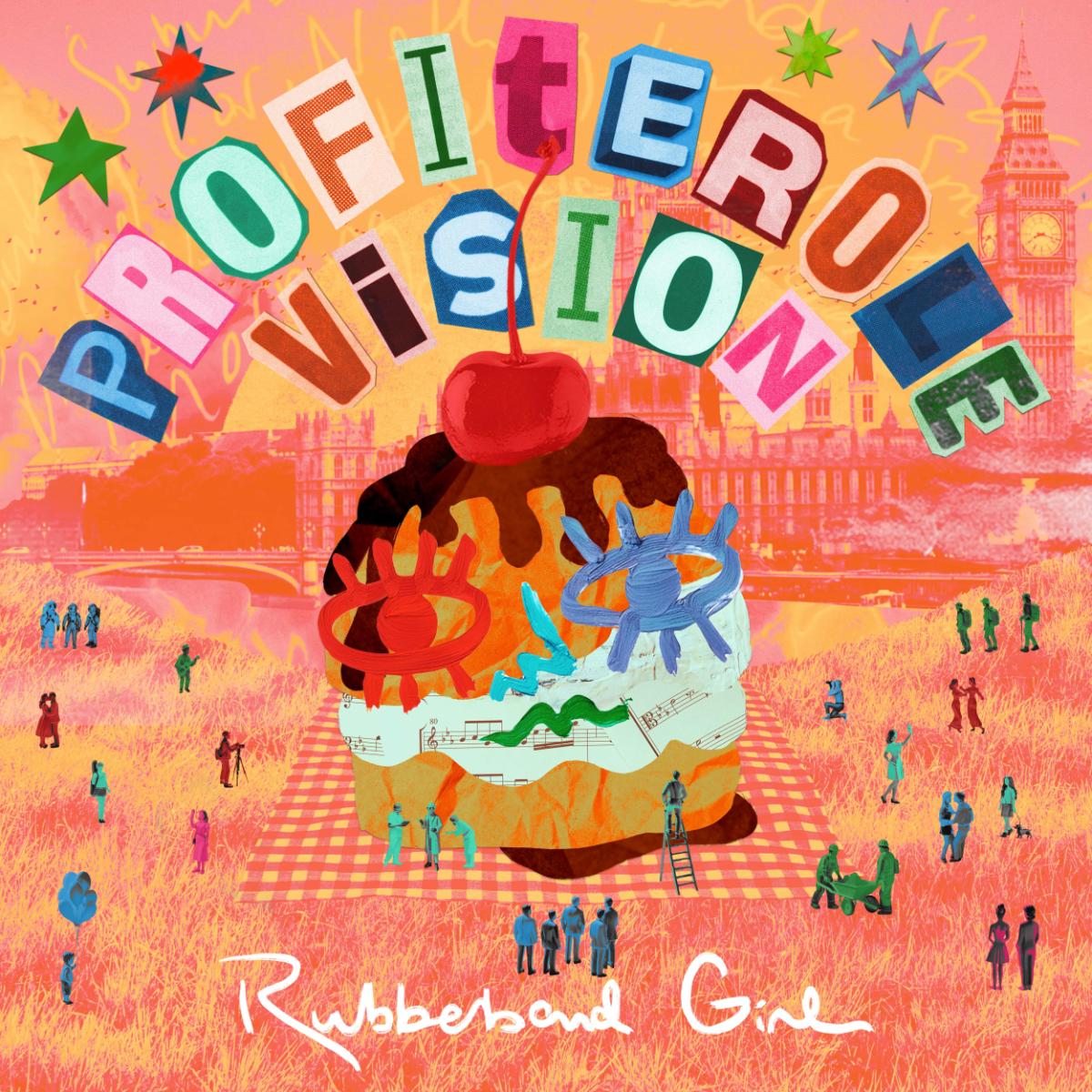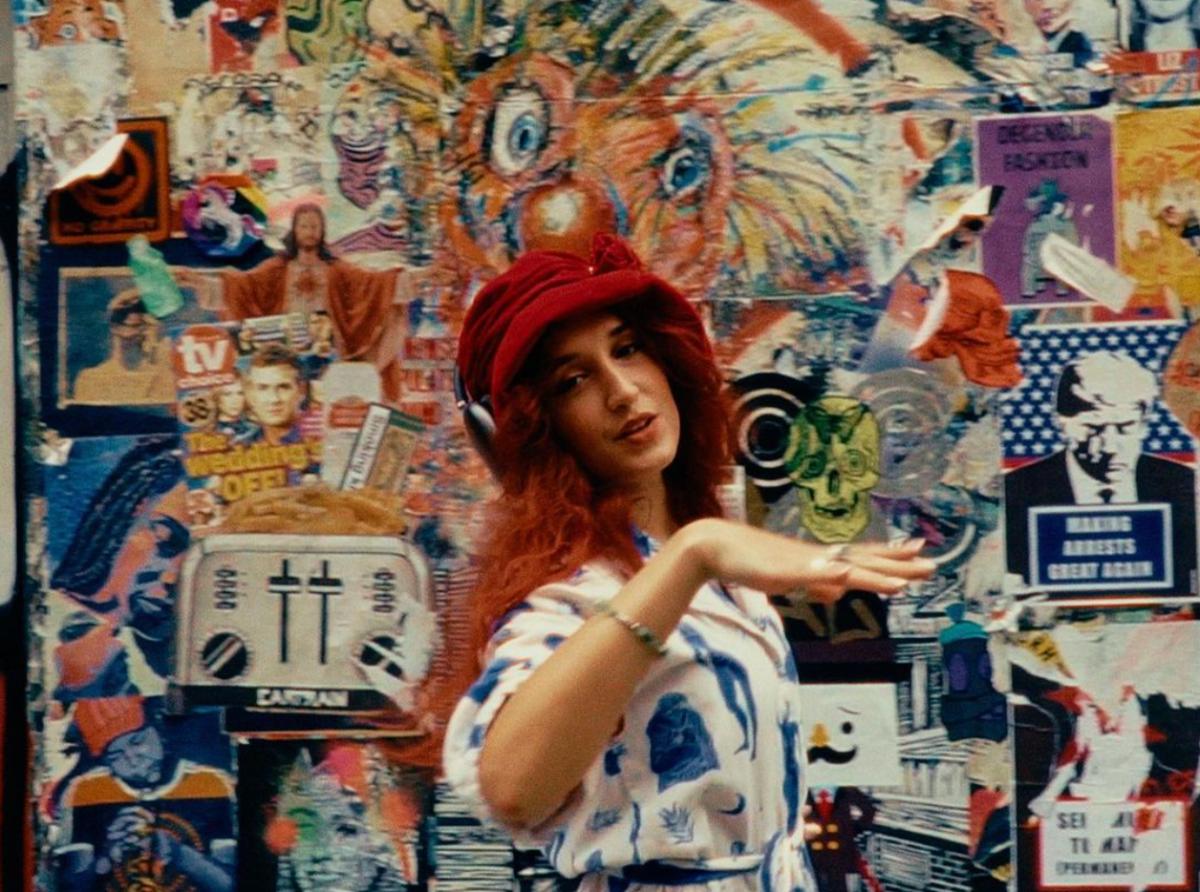Rubberband Girl In Conversation With FAULT Magazine

Rubberband Girl, the brainchild of Caitlyn Scarlett, has officially launched into the music scene with their debut album Profiterole Vision. A fusion of genres ranging from soul and pop to trip-hop and jazz, the album showcases Caitlyn’s evolution as an artist, reflecting her journey from creative burnout during lockdown to a vibrant celebration of life. Produced alongside Grammy award-winner Jonathan Quarmby, Profiterole Vision is an authentic expression of Caitlyn’s diverse influences and her desire to create music that uplifts and unites. In this exclusive interview, Caitlyn takes us through the making of the album, the importance of optimism in her music, and the personal narratives that shape her sound.

FAULT Magazine: You’ve described Profiterole Vision as the body of work you’re most proud of—what makes this album stand out for you compared to your previous projects?
Rubberband Girl: Well Profiterole Vision is the first full album I’ve ever made, so it’s been very fulfilling to create a fully fleshed-out long-form project that is both cohesive yet varied. The sound is much more organic than some of the more electronic music I’m known for, and the lyrical subject matter is overall more positive and celebratory. I feel like I’ve matured and mellowed as a writer and can finally enjoy making art for art’s sake.
FAULT Magazine: How did you develop such a unique sound for Profiterole Vision?
Rubberband Girl: Jonathan Quarmby, who I consider the co-founder of Rubberband Girl, is a producer I’ve been working with for almost 10 years now. I think he understands my DNA as a writer and knows how to help in bringing my crazy ideas to life while also reigning me in, which has enabled us to create a congruent feel throughout the project, despite the wide blend of genres and influences in the music. I told him from the beginning that I wanted the sound to be as organic as possible, with the occasional synth as an exception, so using predominantly live/acoustic instruments including a banjo, string section, and even flugelhorn has definitely played a big role in defining the band’s sound.
FAULT Magazine: Is there a narrative thread running through the album, or would you say the album is best enjoyed as individual windows into your artistry?
Rubberband Girl: There are some general vibes of nostalgia, romance, existentialism, and seasonality, and the album, when listened to in order, moves from late spring to early autumn thematically. The name Profiterole Vision came from an expression which myself and a childhood friend often used because we struggled to pronounce the word ‘peripheral’. I thought it was the perfect title for the album, which is in itself quirky, whimsical, and centered around the notion of seeing the sweet side of life.
FAULT Magazine: How important is it for you to convey optimism in your music, and how do you balance that with more complex emotions?
Rubberband Girl: It’s become more important to me as I’ve matured. I’ve spent a lot of years using music as an outlet for my pain and angst, which though therapeutic, is also somewhat self-indulgent. These days I’m enjoying channeling energy into something that’s going to raise my own spirits as well as others. Of course, that’s not to say I only write about happiness, but I feel it’s important to celebrate life in all of its ups and downs, as an adventure rather than an uphill battle.
FAULT Magazine: You started Rubberband Girl during lockdown after experiencing creative burnout. How did that challenging period influence the direction and sound of this project?
Rubberband Girl: It pushed me to start trusting my own instincts again and pay no mind to self-doubt or outside opinions. I have issues with the direction in which the music industry has gone over the last decade or so, and this project has been my quiet rebellion. I haven’t made this album because I think the masses might like it, or it might make me money (although of course, both would be nice), but because every song has been an honest and authentic self-expression, which I myself would listen to. Basically, it’s my idea of good music.
FAULT Magazine: The album ends on a high note with All We Have Is. What message do you hope listeners take away from this track and the album as a whole?
Rubberband Girl: There’s a great quote that goes something along the lines of “Life from up-close looks like a tragedy, but if you lean back you’ll see it’s actually a comedy.” I hope this album reflects that sentiment and leaves listeners with a sense of romance and optimism.
FAULT Magazine: What would you say was the most emotionally taxing track to write on the album?
Rubberband Girl: Probably In Hell, which was written during the breakdown of a relationship. I experienced what it’s like to watch someone suddenly fall out of love and take their interest elsewhere, seemingly unbothered. Hence the line, “I’ve been in hell, I don’t think it’s fair. You should be here as well.”
FAULT Magazine: What is your FAULT?
Rubberband Girl: It’s my FAULT you’re now craving profiteroles.